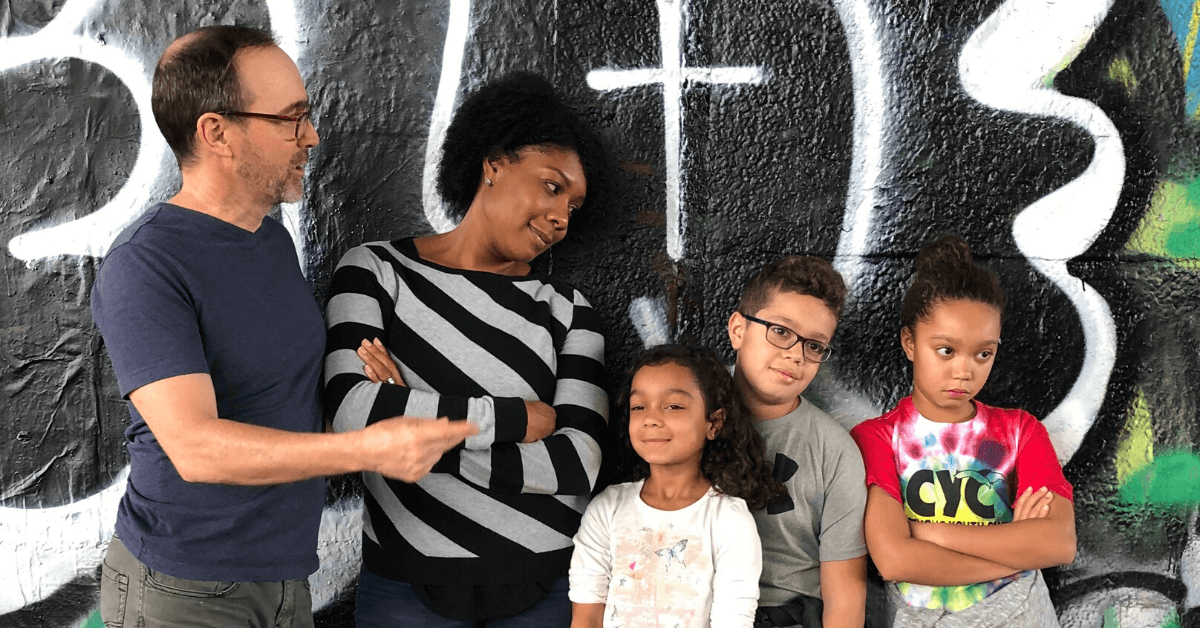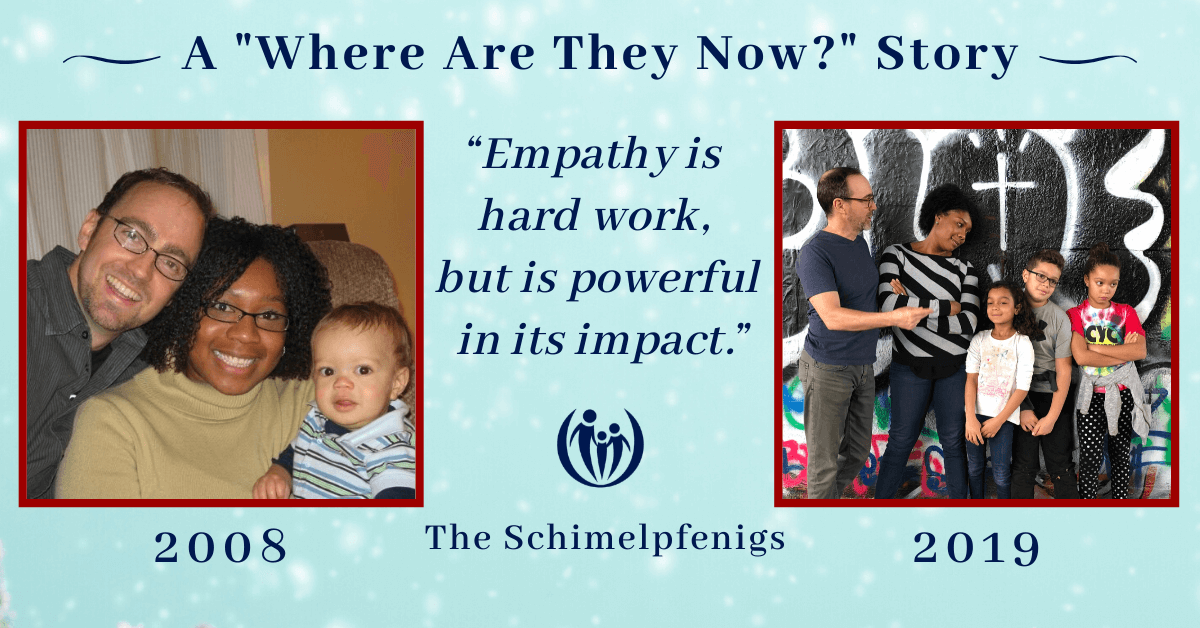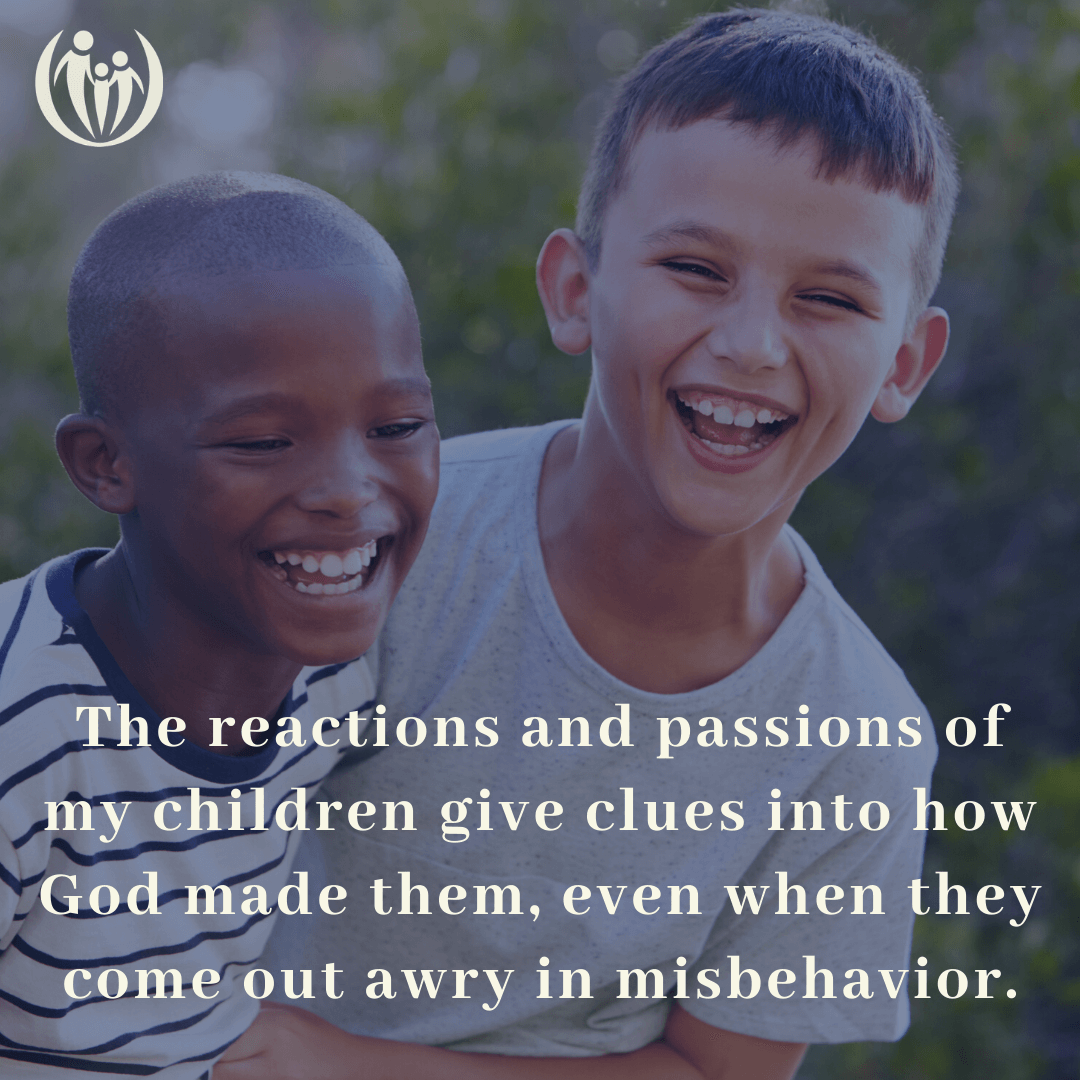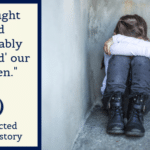
“Empathy is hard work, but is powerful in its impact.”
 We are checking in with families who have been utilizing the Connected Families Framework in their homes. What do these families look like 5, 10, or even 15 years later? Today, we meet Cody and Erica Schimelpfenig and see how Connected Families has helped shape the culture in their home to become one of empathy and grace. Enjoy and be encouraged!
We are checking in with families who have been utilizing the Connected Families Framework in their homes. What do these families look like 5, 10, or even 15 years later? Today, we meet Cody and Erica Schimelpfenig and see how Connected Families has helped shape the culture in their home to become one of empathy and grace. Enjoy and be encouraged!
My wife, Erica, and I were first exposed to Connected Families through yearly workshops offered at our church in south Minneapolis when our oldest was just 2. I still have worksheets and notes from some of those workshops. Our kids are currently 12 (Jonah), 9 (Cana), and 6 (Mercy). We have continued to dig deeper into the resources Connected Families offers including books and online courses.

It was easy for me to feel like the issues or challenges I was having as a parent were not normal or that I was doing something wrong. I think the “special sauce” of the Connected Families community is hearing other parents (at workshops and in online courses) share their own struggles and successes. Having a place, and safety, to be real about not knowing what the heck I was doing has been freeing and encouraging. The Connected Families Framework has been a transformative tool for our family. I saved a screenshot of it on my phone and refer back to it often! It has given me a process to walk through when I’ve needed it most. The ideas below I’ve committed to memory and are crucial during intense discipline situations:
- You are SAFE with me: I need to remember to “go slow, get low.” Instead of the “power over parenting” I tend to default to. And I need to take that 2-second pause and ask myself “What is going on in me?” That alone leads to de-escalating situations…by calming me down.
- You are LOVED NO MATTER WHAT: “What is going on in my child?” This is probably THE most challenging part of the journey. Empathy is hard work, but is powerful in its impact.
- You are CALLED AND CAPABLE and RESPONSIBLE: When I coach and correct I have a long-term vision for my kids. This includes teaching my children they have amazing gifts they can use to serve others as well as guiding them to make things right when they have screwed up. Of course coaching and correcting is way more effective when I remember to start with making sure they feel safe and loved.
What does this look like for us in real life?
- LYING: I was raised that lying is BAD, and wrong, almost like a cardinal sin. It is not good, of course, but reframing situations in which lying was happening (or tempting) into moments to “practice truthfulness” really changed the dynamic of the interaction and often the result. An example is brushing teeth. “Did you brush your teeth? Really? Well, let’s stop and think, cause I can smell your breath. Should we practice truthfulness?”
- DO-OVERS: Giving our kids a chance to respond a second time differently without tone or attitude has been transformative for both our kids and us as parents.
- GIFTS-GONE-AWRY: This is a significant change in mindset I am still working on. The reactions and passions of my children give clues into how God made them, even when they come out awry in misbehavior. Gifts can be used to bless or to make a mess. For example, we are seeing how our daughter’s “gift gone awry” to try to control a situation is actually her creativity and determination playing out in less than ideal ways. It is our job to channel that gift to be used for good.
As our kids grow and begin to reach adolescence, parenting takes on a whole new challenge. My wife and I are so grateful to have a community and a place to find help and wisdom for parenting and encouragement to lead our family with grace.
What are your parenting strengths?
You’ve got them. Knowing your strengths will help you become the best parent you can be. Knowing your parenting challenges is useful information too. Take our FREE ASSESSMENT.






